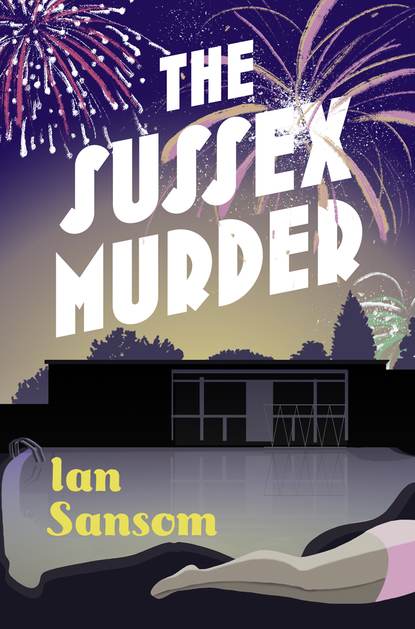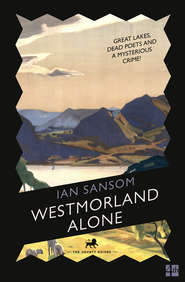По всем вопросам обращайтесь на: info@litportal.ru
(©) 2003-2024.
✖
Flaming Sussex
Автор
Год написания книги
2019
Настройки чтения
Размер шрифта
Высота строк
Поля
‘Yes,’ I said, turning back and taking the receipt, and turning towards the door again. ‘Next week, absolutely.’
The coast appeared to be clear.
‘Actually,’ I said, as I reached the door, ‘I wonder if I could just borrow your pad for a moment?’
The tailor swivelled the pad towards me.
‘And a pencil or pen?’ I asked.
He took his pencil from behind his ear, licked it ostentatiously and ceremoniously handed it to me.
‘With pleasure, sir.’
And so I scrawled my resignation letter to Morley – courtesy of M. Skulnik, Sclater Street, E1, estd. 1928 – pocketed it and, checking in every direction to make sure the coast was clear, ventured outside.
I’d had enough.
CHAPTER 6 (#ulink_291f33e9-2d94-56b9-affc-17d5a290445a)
WITH MY FINAL FEW COINS I made my phone calls and adjourned to a pie and mash shop off Sclater Street, whose sole recommendation was that it claimed to offer the cheapest cup of tea on the market. Under other less trying circumstances, I might well have adjourned to one of my favourite East End eating establishments, Bloom’s on Aldgate, or Ostwind’s, with its bakery in the basement, or Strongwaters, or Silberstein’s: a man could eat like a king in the restaurants around the Lane, while snacking on latkes and herring in between.
But I had rather lost my appetite.
The first call I made was to Willy Mann, a restaurateur and an associate of the infamous Mr Klein, an East End businessman in the loosest and broadest sense – which is to say, a crook – who had offered me work on a number of occasions since my return from Spain, work I had so far declined, on the basis it was beneath my dignity and against all my principles.
Mr Klein had wide-ranging business interests – in property, retail, wholesale, in precious metals and pharmaceuticals, the import and export thereof – none of which enterprises particularly appealed, and several of which were both highly illegal and extremely dangerous, but which, crucially, did not involve endlessly sharpening the pencils of the country’s leading autodidact, and which would, significantly, mean that I didn’t need to travel the length and breadth of the country in order to make a meagre living, and could safely remain in London without fear of threat or retribution from people like the Limehouse chap and the many and various others whom I had foolishly offended. Out of the frying pan and into the fire – a desperate bid for freedom.
The second call was to Miriam.
I’d intended simply to let Miriam know that I wouldn’t be joining her for our planned trip to Sussex, but she had somehow commandeered and then entirely redirected the conversation, letting me know that she needed to talk to me urgently, immediately and face to face. Which is how I had ended up, with Willy Mann, discussing the possible terms and conditions of working for Mr Klein, when Miriam arrived.
As always, one was instantly struck by her sheer raving beauty, her languorousness, her confidence and her charm. She had, as always, the appearance of someone who had recently raised herself to commanding heights from a position of reclining elegance – possibly reading Proust, or the Picture Post, with liquid refreshments, a handsome chauffeur and a strokable Pekinese all conveniently at hand. She certainly did not look like she belonged in an East End pie and mash shop, and she made no attempt to look like she belonged. She looked entirely – I think the phrase is – à la mode, in the most extraordinary red and white checked wool coat with fur shoulder detailing and a thick rolled red and white belt, over a creamy white crepe dress, and what appeared to me to be a hunting cap set with a monkey paw brooch. To say that she stood out against the white-tiled walls of the pie and mash shop and its many mirrors reflecting the dark, huddled masses inside and out, would be an understatement. She looked like a visiting dignitary, or indeed an ambassador not merely from another country but from an entirely other world.
‘Miriam,’ I said, getting up from the table. ‘You’re looking—’
‘Sensational, Sefton?’ she said.
‘That’s exactly what I was going to say.’
‘Good.’ She flashed me a smile.
‘Miss Morley,’ said Willy Mann, getting up and extending his hand.
‘Have we met?’ asked Miriam.
‘In Essex, miss.’
‘Ah, yes,’ said Miriam. ‘Never mind.’ She settled herself at our table. ‘One of your regular haunts, Sefton?’
‘Not exactly,’ I said. ‘Would you like … some pie and mash?’ Even the question seemed absurd.
‘It’s a little early in the day for me for pie and mash, thank you, Sefton.’ She stared at our mugs of stewed tea, and at Willy Mann’s plate of half-eaten burned brown pastry, grey minced mutton, creamy mashed potato and pool of thin green parsley sauce – and shuddered. ‘Though thinking about it, any time is a little early in the day for pie and mash.’
‘Can I get you anything, miss?’ asked the café owner, who’d appeared at our table on Miriam’s arrival, rightly anticipating that this was a customer who might expect a rather more attentive than average standard of service.
Before saying anything, Miriam looked up at the man, slowly and appraisingly. For a moment I thought she might actually finger his rather stained apron. He was a dark-skinned gentleman, extraordinarily handsome – perhaps from Ceylon – who spoke the most perfectly accented East End English. I was reminded of the old Jewish joke about the Chinese waiter in one of the East End’s many kosher restaurants who spoke perfect Yiddish. ‘Don’t tell him,’ the restaurant’s owner begged his customers, ‘he thinks he’s learning English!’
‘A cup of coffee would be wonderful,’ she said, after another moment’s pause. ‘If you can manage it.’ She had him, as they say, in the palm of her hand. The café owner flushed and became flustered.
‘I could do you tea, miss,’ he said apologetically.
‘Do you know, tea would be almost as equally wonderful, thank you,’ she said.
‘Are you sure we can’t tempt you, Miriam?’ I said, gesturing towards Willy’s pie and mash.
‘Quite sure, thank you.’
The café owner departed, doubtless to brew some fresh tea for Miriam, rather than serving the swill that he was happy to dish out to the rest of us.
‘So,’ said Miriam. ‘Here we are.’
‘Indeed,’ said Willy Mann, pushing around some mashed potato on his plate. ‘Here we are.’
I’d told Miriam that I’d be free to meet her at one o’clock. It was now midday: for the first and last time during our long relationship, she was early. This was awkward. I’d hoped to have concluded my business with Willy before having to deal with Miriam. As it was, we were all now going to have to deal with each other.
While I stared out the window, still scanning the street for the Limehouse chap, Willy and Miriam eyed each other up. Or at least, Willy eyed Miriam up, and Miriam allowed herself to be eyed: this was one of her techniques. So many men found her alluring, she seemed to have found the best way to deal with them was to allow them their admiration – and then, like a praying mantis, she would crush them mercilessly. Her ruthless impassivity was a technique I had observed in practice many times and it was, invariably, devastatingly, outrageously successful. To see Miriam at work among men was to witness something like a Miss Havisham, who just happened to look like Hedy Lamarr.
‘So what brings you to Club Row? Have you come for a dog, Miss Morley?’ asked Willy, rather teasingly, I thought.
‘Not exactly,’ said Miriam, ‘no.’ She looked at me. ‘Though I do love dogs. On more than one occasion a stray dog on the street has followed me home. Isn’t that right, Sefton?’ I had no recall of any stray dog ever having followed her home and wasn’t quite sure what she was referring to. ‘Dogs just seem to come to me,’ continued Miriam. ‘But they must be trained properly, don’t you think?’
‘Indeed,’ said Willy, who had lost all interest in his pie and mash and who was now staring at Miriam, fascinated. It was always the way. I wasn’t quite sure how she did it.
‘I like dogs who are – what’s the word, Sefton?’
‘I’m not sure, Miriam,’ I said. ‘Docile?’
‘No,’ said Miriam.
‘Ferocious?’ offered Willy.
‘No, no,’ said Miriam.
‘Loyal?’
‘No.’
‘Obedient,’ said Willy.











